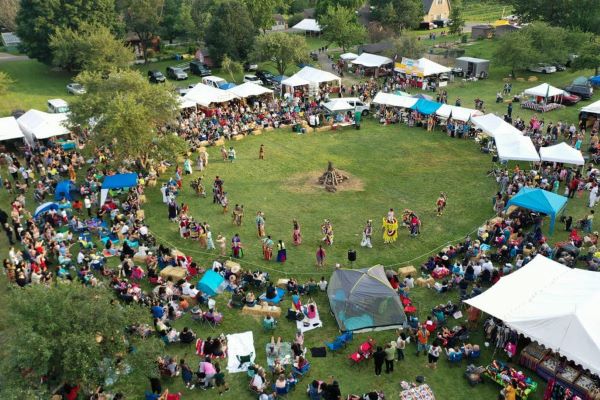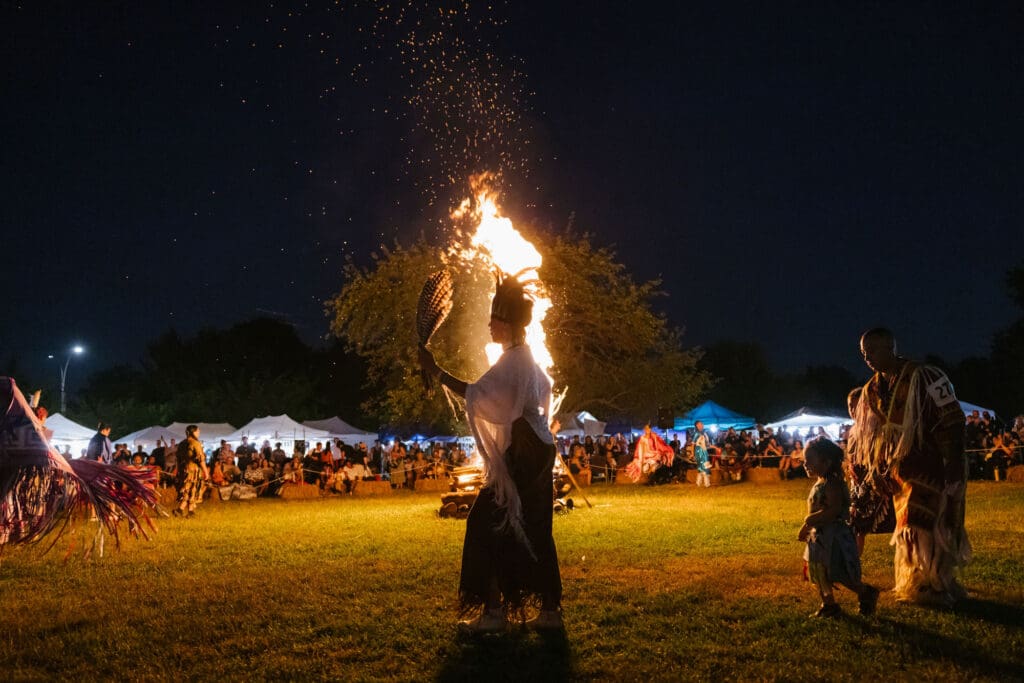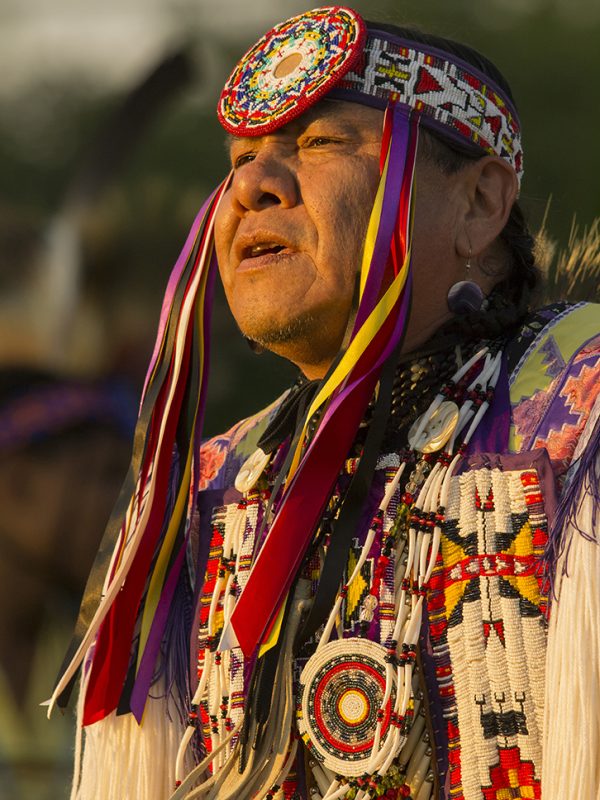BY

The movement, music, and regalia are spectacular. So are the buffalo burgers and fry bread.
Queens County Farm Museum hosts the Thunderbird American Indian Powwow next weekend (Friday, July 26, through Sunday, July 28).
Now in its 45th year, this friendly competition attracts more than 40 Indian Nations – i.e. Cherokee, Choctaw, Delaware, Hopi, Matinecock, Navajo, Shinnecock, Taino, and Winnebago – from around the United States, Canada, and the Caribbean.
There are six categories – i.e. Buffalo, Grass, Hoop, and Smoke – for competing dancers and a few non-competitive ones — i.e. Gourd, Round, and Rabbit — as well as demonstrations of various Apache, Iroquois, and Pueblo choreographies. Expect a master of ceremonies to provide details.

A one-day pass costs $18, but those between ages three and 12 pay $12. Three-day passes are $36 or $24 for those in the previously indicated age range. Children under age three can attend for free. Proceeds support the Thunderbird American Indian Dancers Scholarship Fund and Queens Farm’s Education Program.
A Native American Craft and Food Market with beadwork, books, ceramics, embroidery, food (Remember: try the burgers and bread!), jewelry, and stones will operate all weekend, and bonfires with dance circles are planned for Friday and Saturday nights at dusk.
Here are the operating hours.
- July 26: Gates open at 6 pm, performances from 7 to 10 pm.
- July 27: Gates open at 10 am, performances from noon to 5 pm and 7 pm to 10 pm.
- July 28: Gates open at 10 am, performances from noon to 5 pm.
Queens Farm’s main entrance is at 73-50 Little Neck Pkwy. in Glen Oaks. The site has a free parking lot.
Editor’s note: As mentioned above, the Thunderbird American Indian Dancers Scholarship Fund is one of the beneficiaries of this three-day event. Founded to promote and maintain various cultural traditions in 1963, this troupe is the oldest Native American dance company in New York State. Consisting of Hopi, Mohawk, San Blas, and Winnebago descendants, the founders were all “first generation,” which means that their parents had been born on reservations.

Images: Queens County Farm Museum
